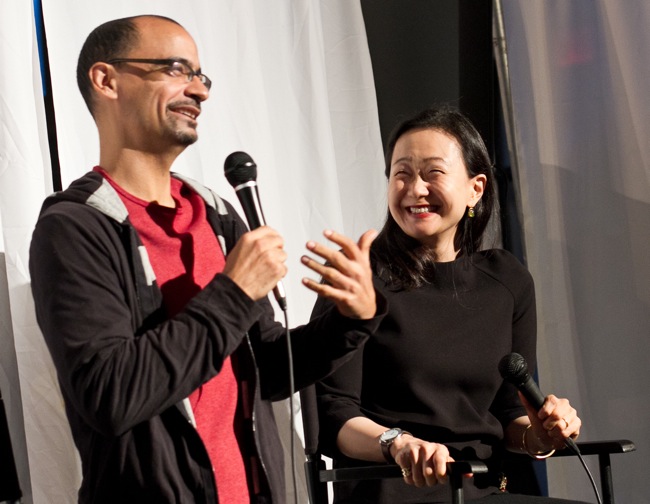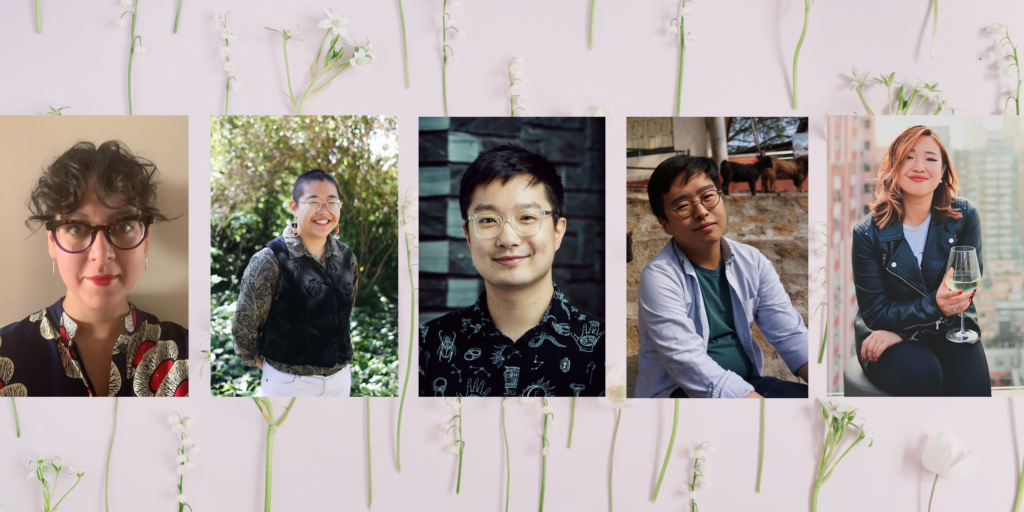“They say to write something new you’ve got to be lost.” An excerpted video conversation featuring the Pulitzer Prize winner and the author of Free Food for Millionaires.

July 25, 2012
Junot Diaz: When I rethink my origins as an artist, as a writer, for me what was very, very valuable was how incessant and how numerous were the formulas that were thrown at me. There were these ideas about how one became a writer and how one became an artist. And I know, for myself, I was tyrannized by these patterns. Anytime you’re presented with these options, they rarely feel like options and they mostly feel like paths that you have failed to take. Because if you come from a background that in no way hews to what we would say the median, there’s no chance that you are not going to fall away from any of these formulas. When I finally got into an MFA program with people who had been workshopping for, like, their entire time, they’ve been workshopping since the seventh grade. You don’t speak the language or you’re not familiar with the shaping habit of writing for writers. One of the important outcomes, I think, of the proliferation of this idea of workshopping as a lifestyle has been the gravitational focus has moved away from the organic orientation of readers and towards a really mutated, very narrow idea of writing for other writers. That as a writer you need a much stronger conceptualization of what readers mean and how readers function on the page. Readers are absolutely accustomed to massive unintelligibility. And without the reader workshop, they’re always saying, “Well, I don’t understand this.” Unintelligibility has always been attacked. Where unintelligibility is an absolutely normative condition of the experience of reading. And a lot of times, a bunch of the shit that we do, people are trying to lay it on some ethnic cultural crap. “Are you sure people are going to understand this? Are you positive that this isn’t too much?” For a reader, if they can make sense of sixty percent of what you write, that’s considered a win. The great joys of reading is that most of what you read escapes us and is only learned or approached through rereading and through contact with other readers. If you don’t have an interesting way of how audience works, you’re making about five times more work for yourself as a writer. Audience helps you shape an economy of signification, and the proliferation of some of these fantasies about how art works—and very unrigorous—it’s not helpful for anybody. The writer with an audience is a powerful artist and I think that’s what the best literature is. We’re overhearing comments that were directed to someone that doesn’t even exist anymore. And the very fact that someone was supposed to receive it charges the words with meaning, significance, and with libidinal energies. You know?
Min Jin Lee: I actually wasn’t a creative writing major. I grew up in a working place neighborhood in Queens. My parents were immigrants, I was an immigrant. So the idea of being a writer—a fiction writer—was such an incredible luxury. One of the things that’s interesting to me in terms of my origin is, the way I was read was determined by who read me in my classrooms, who my teachers were, and later on when I started to try to publish, what my agent said to me about the way I was writing and what publishers said about my work. I’ve been told several times I’m not Korean enough. I’ve been told several times I’m too Korean. And then after awhile you just wonder, what the hell does that mean? For us to have some kind of inner—I don’t know, how do you describe it—some inner belief that somehow despite the fact that it’s ahistorical of our biographies that we believe that somehow it was OK, that somehow we deserved to continue telling our stories. For me, I’m very, very grateful for this little inner belief, and I have to have it because sometimes when you face the screen or when you face something that somebody wrote about you, you have to persist. And I think for Junot as well, we’ve drawn so much courage from writers that we don’t know because the text, for us, was our classroom too.
Diaz: It’s so hard to generalize from one experience to the next and yet there’s an enormous amount of affinity to be found between people who are incredibly disparate. If you grew up the way I did, a kid, you know, an immigrant kid, a Dominican kid from a universe where being a writer was about as unimaginable and was also just discouraged. Any artist was just like, are you insane? For me, that’s what it all comes down to, is that there’s so much out there trying to stop people from telling whatever little freaky story you want to tell. But the love of word, both from the readers and writers, outstrips the whole damn thing.
Lee: It took me twelve years to publish my first novel.
Diaz: You beat me by a year. It’s hard to convince yourself that… You know, they say to write something new you’ve got to be lost. If you know where you’re at, if you’re confident you know where you’re at, you’re not writing anything new. If you’re lost chances are you’re going to produce something that’s going to be interesting at least. But it’s really hard to square the feelings of confusion and, for me, a lot of self-loathing. I mean, when you’re like on your sixth year of a novel, it’s real easy—and you’ve taught a student in a workshop and they’ll write a novel in six months—it’s not unimaginable that you’ll blame yourself. A friend of mine said something that was helpful for me and pushed me through this. Every time you write a new book, even if it’s your first book, the hard part isn’t writing it. The hard part is becoming that person you have to become to finish the book. And usually what you need to finish a book is not more talent or more workshops or more criticism. Usually what you need to finish your book is an extra dose of compassion, not just simply to connect to your characters—that helps. But usually the compassion that you need to connect to your characters is first modeled whether you’re compassionate to yourself. And without modeling that, without becoming the person that is compassionate to themselves, forgives themselves for sucking, for taken 11 or 12 years, this shit isn’t going to happen. And worse, how in the world are you even communicating with your characters when it’s not through major compassion. It took a lot time, you guys. I never finished my book, I never even got traction on my book until I went through the long process of finally saying, you know what? And it sounds like we should all, like, hold hands, but—
Lee: We can.
Diaz: —until you get to that moment, and I think really what I really said was, “I forgive you for really sucking.” I know it sounds crazy, but I think the book only started then. The book only started then. And before that I approached it with all my weapons. I approached it with my training. I approached it with my reading. I approached it with my intellect. I approached it with competence. I approached it with confidence. And every weapon failed. And then about eight years down the road, I was like, “It’s OK. So you suck. Let’s begin.”
Lee: Reading people like Junot where he gave integrity to communities that were never central before. And this is what I guess is really important that I’d love to share with you today, which is: What everybody tells you that what you’re writing about is different or weird and it’s not going to work, what they don’t realize is that there are all these untapped readers out there who are actually waiting for that weird thing you’re going to write. All of us here are statistical anomalies when we care about certain subjects that no one else thinks they care about. There are actually many, many people who want to know. And somehow you have to care that you will… I don’t know. It’s one of two things. Do you write for yourself, or do you believe there is an audience? I’m not sure because when people say, “I only write for me,” I kind of believe it. And in a way, you do have to believe it. But another part of me doesn’t believe it, because you can also write a diary. You don’t have to want to publish. I always feel like it’s true: I definitely write for me. And I definitely trick myself. I kind of tell myself—whether it’s an academic essay, a book review, anything—I kind of tell myself nobody’s going to read it, so it’s OK. Just tell the truth.
Diaz: They use the big economic stick to terrorize you about an aesthetic. If I said to you it wasn’t working across aesthetic issues, that’s an argument worth listening to. But the argument is, basically, really, you’re not going to sell. Guess what? We don’t fucking sell anyway.
Lee: I really hope you’re encouraged because what you want to say, the stories you want to tell, they matter.
Diaz: You haven’t done anything wrong. Didn’t take an MFA? You didn’t do anything wrong. Took 11 years to write your first book? You didn’t do anything wrong. Don’t feel like writing about your family? You didn’t do anything wrong. Feel like writing about your family? You didn’t do anything wrong. Want to write about Asians? You didn’t do anything wrong. They keep trying to tell us we did fucking something wrong. You’re an artist. How could you do anything fucking wrong? Guys, thank you so much.



